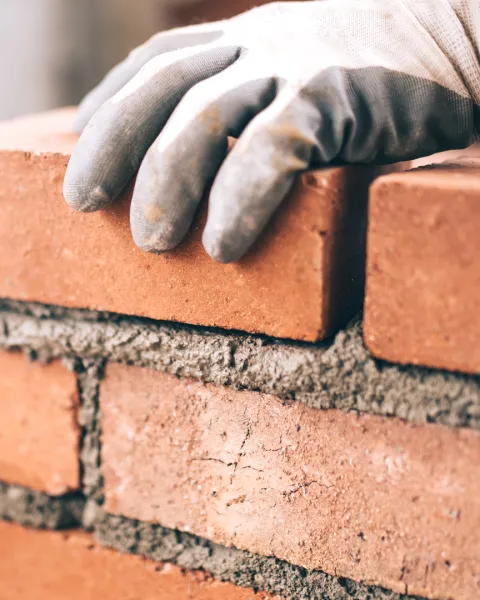Takeaways
- California exempts “the building and construction trades” from its bar on employer discrimination based on an employee’s off-duty use of marijuana.
- Construction employers may continue to use urine drug testing for marijuana and to take adverse employment actions against applicants and employees who test positive.
- Employers that operate in multiple states must review all applicable marijuana laws to ensure compliance.
Related links
Article
California prohibits employers from discriminating against employees because of off-duty use of marijuana, with some exemptions. One exemption is for “the building and construction trades.”
California’s AB 2188 greatly expanded the scope of the state’s existing marijuana laws in 2024 by prohibiting discrimination based on the off-duty use of marijuana. (See, generally, High Times Ahead for Employers in California.) This prohibition creates a dilemma for employers who conduct marijuana drug testing because marijuana stays in the human body much longer than alcohol and other drugs. AB 2188 added section 12954 to the Government Code.
AB 2188 does not permit employers to conduct marijuana drug testing unless:
- An exemption applies; or
- The drug test detects only the “psychoactive” components of marijuana, i.e., tests only for current impairment.
Although many employers remain uncertain about which tests can detect only the psychoactive components of marijuana (urine testing does not comply with the law), there are exemptions from the law worth noting:
- The law does not apply to employees in the building and construction trades.
- The law does not apply to applicants or employees who must be tested for marijuana under federal regulations.
- The law does not apply to applicants and employees for positions that require a federal government background investigation or security clearance.
AB 2188 does not explain or define the types of businesses or jobs that trigger the exemption for “the building and construction trades.”
Earlier Draft Bill
An earlier draft of the bill contained this language:
This section does not apply to an employee performing work associated with construction, including work involving alteration, demotion, building, excavation, renovation, remodeling, maintenance, improvement, or repair work, a person licensed under the Contractors State License Law (Chapter 9 (commencing with Section 7000) of Division 3 of the Business and Professions Code), or an employee performing work in similar or related occupations or trades.
That language later was shortened to “employees in the building and construction trades.” The earlier draft certainly sheds light on the types of jobs that would fall within the exemption.
Employer Considerations
The benefit of the exemption is that construction employers in California may continue to use urine drug testing for marijuana and to take adverse employment actions against applicants and employees who test positive. Exempt employers do not have to be concerned with using drug tests that detect only the “psychoactive” components of marijuana.
The California courts have not yet addressed the issue of which types of drug tests detect only the “psychoactive” components of marijuana, so employers who do not fall within one of the statutory exemptions must make their own assessments as to the types of drug tests that potentially comply with the law.
Marijuana laws vary tremendously from state to state and even city to city. Within the past few years, several laws have been enacted to restrict or prohibit marijuana drug testing, including, for example:
- New York does not permit any marijuana drug testing under any circumstances (except for testing mandated by federal law or federal contracts).
- New Jersey protects all off-duty use of marijuana, so marijuana drug testing should not be conducted except when there is reasonable suspicion or impairment that has been observed and documented by two supervisors.
- Rhode Island protects all off-duty use of marijuana, so marijuana drug testing should not be conducted except when there is reasonable suspicion of impairment.
- Washington State prohibits pre-employment marijuana testing unless the test can detect the “psychoactive” components of marijuana or there is a safety-sensitive exception (i.e., the position involves a high risk of death).
- Philadelphia does not permit pre-employment drug testing for marijuana unless a statutory exemption is met.
- Pittsburgh does not permit pre-employment marijuana drug testing of medical marijuana users, unless an exception applies.
Employers operating in multiple states must review all applicable marijuana laws to ensure compliance.
Please contact a Jackson Lewis attorney with any questions about employer compliance with this and other workplace laws.
© Jackson Lewis P.C. This material is provided for informational purposes only. It is not intended to constitute legal advice nor does it create a client-lawyer relationship between Jackson Lewis and any recipient. Recipients should consult with counsel before taking any actions based on the information contained within this material. This material may be considered attorney advertising in some jurisdictions. Prior results do not guarantee a similar outcome.
Focused on employment and labor law since 1958, Jackson Lewis P.C.’s 1,100+ attorneys located in major cities nationwide consistently identify and respond to new ways workplace law intersects business. We help employers develop proactive strategies, strong policies and business-oriented solutions to cultivate high-functioning workforces that are engaged and stable, and share our clients’ goals to emphasize belonging and respect for the contributions of every employee. For more information, visit https://www.jacksonlewis.com.



